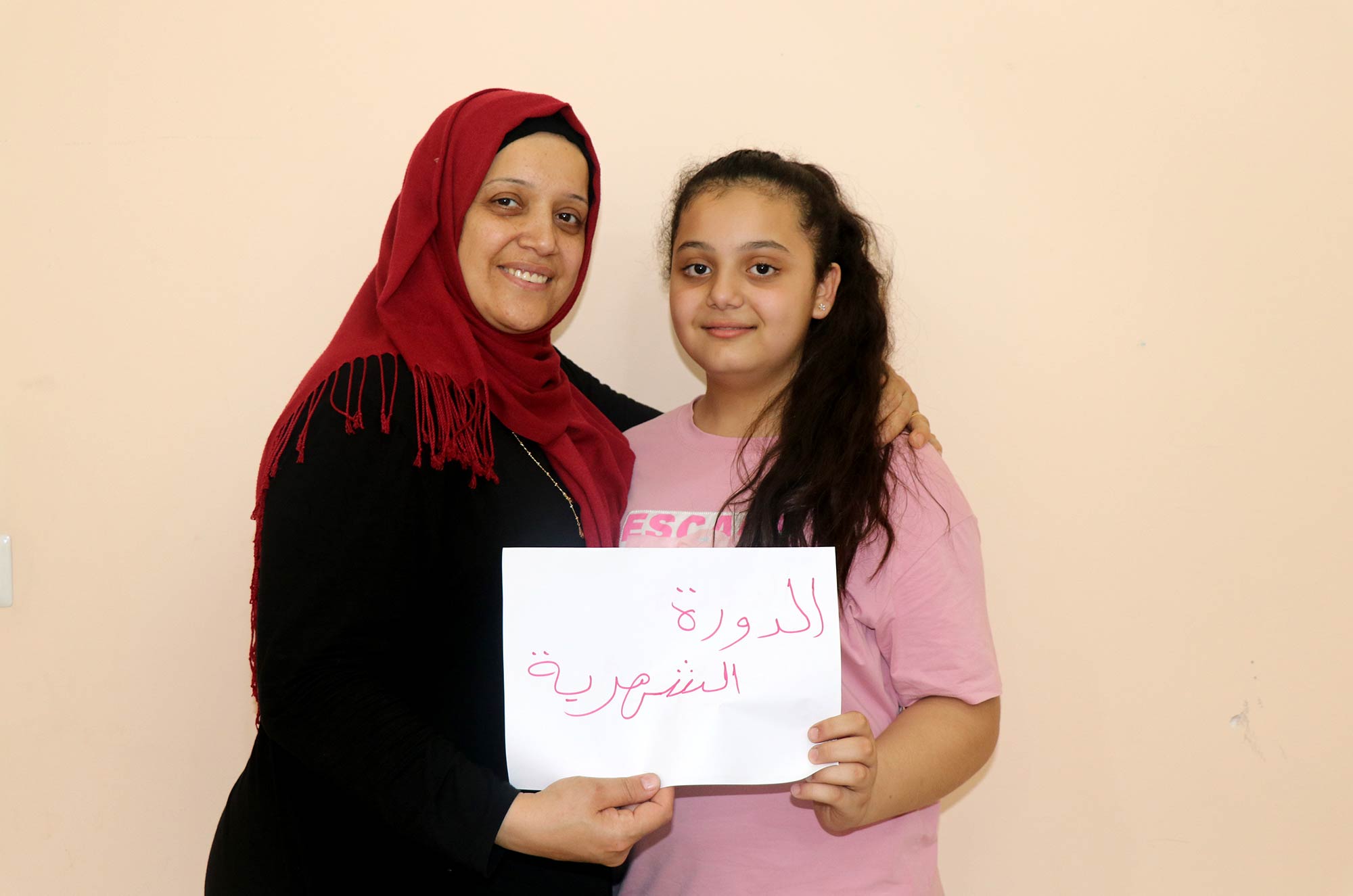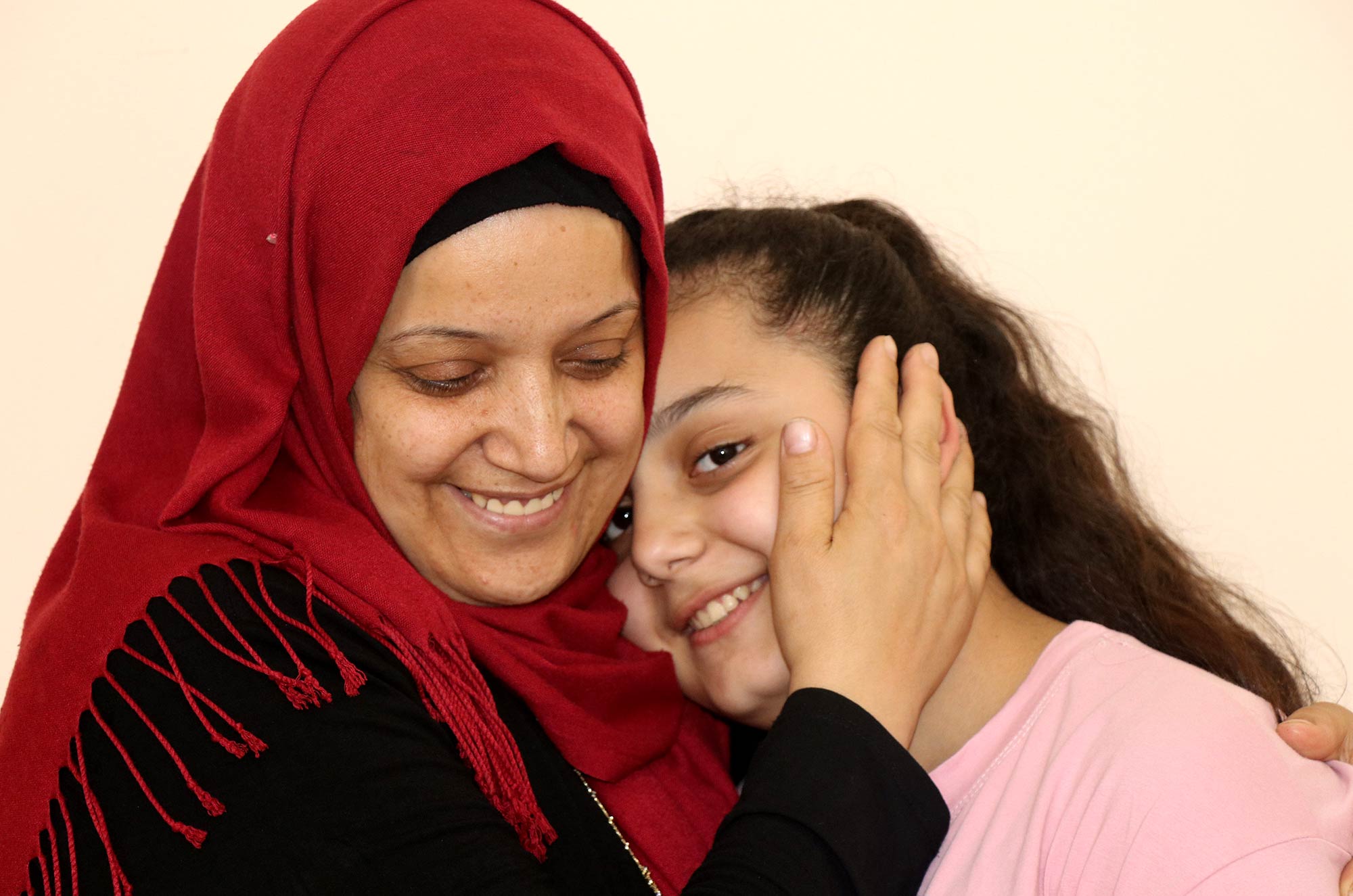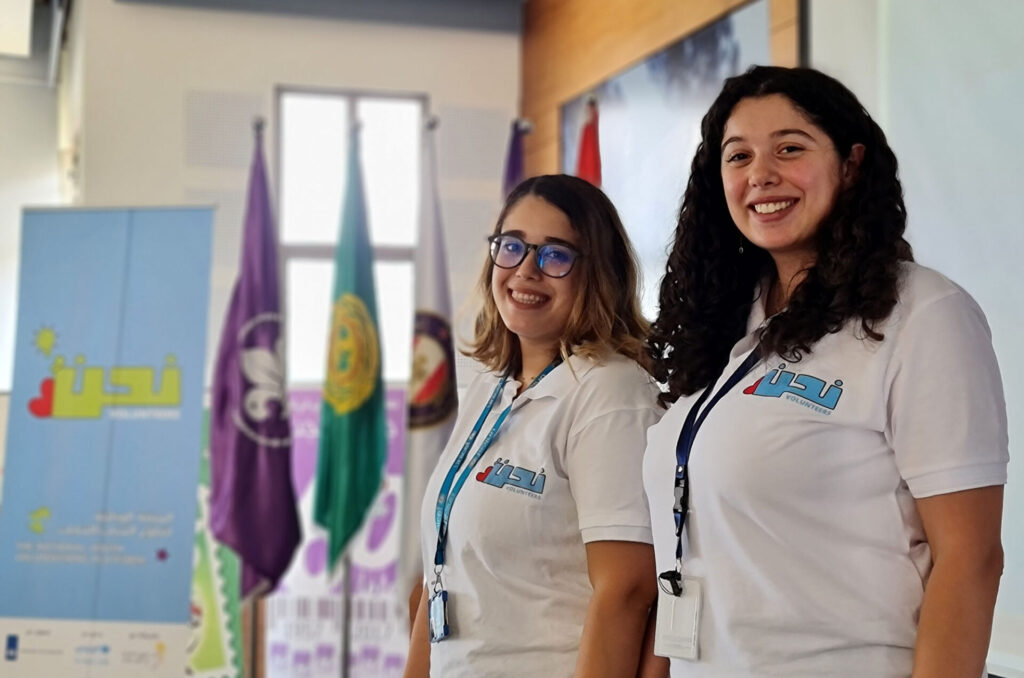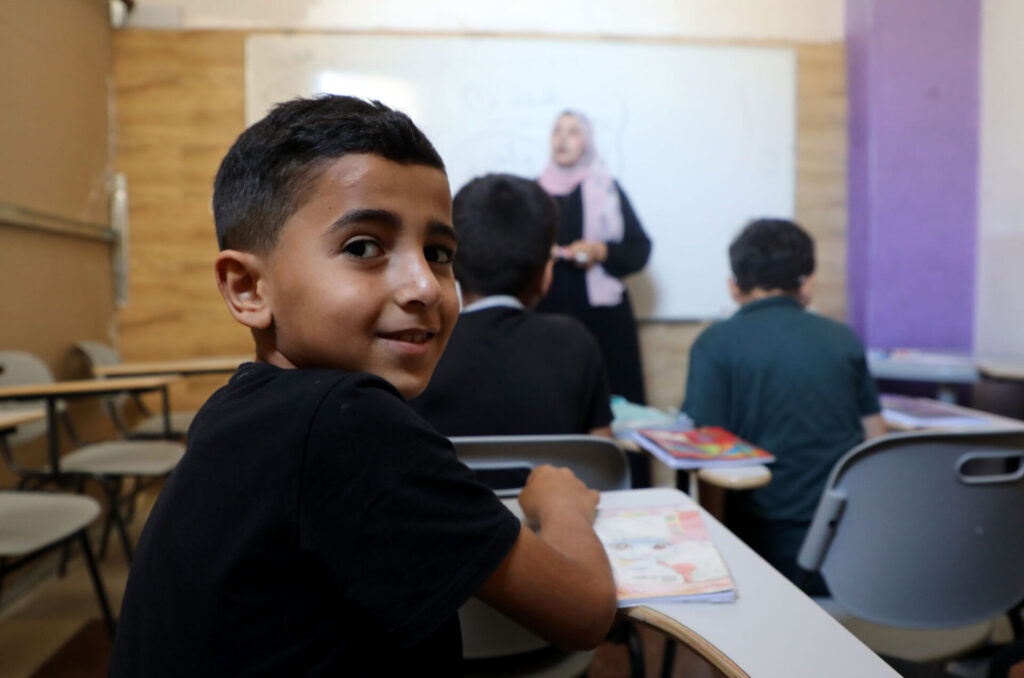HEALTH
Ending stigma, period.
Jul, 2019
"It is my duty as a mother and a woman to help [my daughter] accept her body and its functions, and love it unconditionally and know how to care for it." - Souad
Tackling long standing taboos is an important component of community development work. Anera’s hygiene and public health team regularly works to break stereotypes and alter perceptions. Tackling stigma around puberty, especially regarding a woman's menstrual cycle, is a particular focus for us this year.
Anera recently conducted a series of puberty-related educational sessions at a school for Palestinian refugee children in El Buss camp in Tyre, in southern Lebanon, and visited households to solicit feedback from parents.
Souad, a 52-year-old Palestinian, is one of the parents interviewed. Her daughter, Najah, is a student participating in the hygiene awareness programs. Souad invited us into her home for coffee and shared her personal story.
“When I first got my period, I had no clue what puberty was. Can you imagine?! My mom hadn’t spoken to me about it. Thankfully, I was at home when it happened, but imagine the shock. I was bleeding! There were blood stains on my skirt. I thought I was injured or ill. I ran to the bathroom while calling my older sister who didn’t seem surprised or concerned, which confused me even more.
“I cleaned up and realized that I was not actually cut. My sister calmed me down. She told me that girls get their period at this age. She said I shouldn’t be scared and told me that I am officially a woman.
“I was so confused. I am a woman now? Being a woman means bleeding out of my private parts? I thought, if this is what it means to be an adult, I am not sure I want any part of it!
“My sister said to keep this to myself. She said that the next time I bleed, I should tell her only. Looking back at this, I cannot believe that I actually did not discuss my period with my own mother until years later. This scary period was a very private matter, never to be mentioned. I understood it to be a disgusting bodily function which I must deal with like a grown up woman and never talk about."


“For the past 30 years, I had maintained the same outlook on my body and my period. And I must admit, it’s a bit imprisoning. It’s sad because I inherited this stigma from my mother and probably her mother.
“I used to worry about Najah’s menstruation. I worried that she would start getting her period at a young age and therefore not grow to her full height. Or that she might get her period late and develop acne.
“Now, I am sort of ashamed of myself and my thoughts. I had to apologize to my younger self before being able to apologize to my beautiful daughter.
“After attending Anera’s awareness sessions on menstruation and learning about the value of communicating with my daughter about her body and her period, I understand that it is my duty as a mother and a woman to help her accept her body and its functions, and love it unconditionally and know how to care for it.
“At the age of 52, I actually learned new things about menstrual hygiene and self care. My perspective has changed. For example, only last month, before attending the awareness sessions, I used to prohibit Najah from doing sports, even though she loves football. One of my neighbors once told me that sports can increase menstrual flow and worsen cramps. I know now that, on the contrary, sports actually help with period pain.”


“Today, I am making it a point to visit my relatives and friends, even those who live in other camps, to share what I have learned with them. I do not want them to repeat the same mistakes I did.
“There is nothing to be ashamed of. What we were taught about our periods is wrong and we should not allow little girls to experience the same confusion, self hatred and embarrassment that we went through.”
In collaboration with UNICEF, Anera’s Community-based Sanitation and Hygiene Promotion project is focused on raising awareness on topics like proper hand washing, menstrual hygiene and broader public health. The WASH project organizes awareness sessions at schools, homes and community centers, as well as creative school activities promoting hygiene-related messages and engaging the children and their parents in community service activities.


